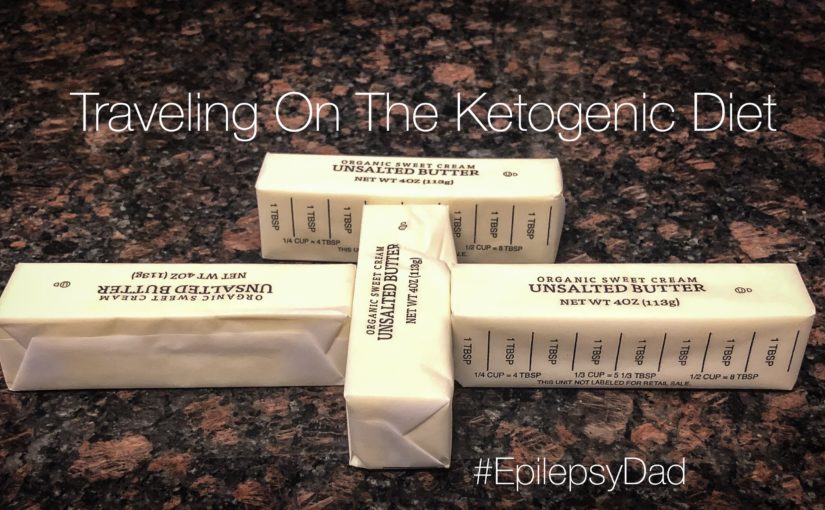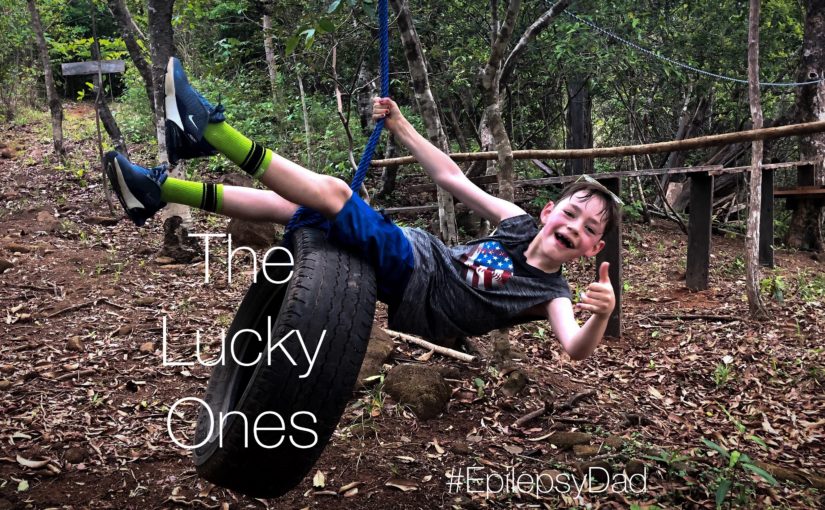We love to travel, so when we started on the ketogenic diet four years ago, I worried that the diet would close off the world to us. We could still go to Colorado and Florida because we had friends and family there with kitchens. There were also stores where we could buy ingredients for his meals and pharmacies if we ran out of medication. But what about the places where we would be on our own?
Our first big trip was almost two weeks in Hawaii. I wasn’t sure how easy it would be to find specific ingredients we would need to make food. I also didn’t know if we could find a room with a kitchen, so we prepared as much food as we could to take it with us. It was our first time traveling with a cooler, so I read through the TSA rules to see where they stood on traveling with ice. I researched coolers to find one that would fit enough food but wouldn’t be too big to carry on the airplane. The week before, we made enough food so that we had meals available for the entire trip. The cooler was heavy, but it allowed us to enjoy our trip without worrying about staying in ketosis.
This year, we went to Panama. At least in Hawaii, there was an ABC Store on every corner. In the remote places we were going to in Panama, that would not be the case. It was also not likely that the closest store would have the specific ingredients we needed. There would also not be a pharmacy to stroll into if we needed a prescription. Again, I hit the internet to read about bringing medication and food internationally. There were no specific restrictions about bringing my son’s food into the country, so we again prepared enough meals to cover the trip plus a few extra days. Even though we were staying in homes with kitchens, making the food ahead of time removed many variables. We also upgraded our cooler to a backpack to make it easier to carry on those long travel days.
Now, traveling on the ketogenic diet feels routine. We prepare the food ahead of time. We know the routine to pack and get through security. And we no longer worry about the world being closed off to us. If we can make keto work in the mountains of Panama, we can pretty much make it work anyway.
If you’re looking to travel on keto, here are a few tips:
- Find complete meals you can prepare ahead of time. Ideally, it’s also food that can be frozen, like ice cream, pizza, and pancakes (syrup went in checked baggage). Some restaurants will heat food for you, some won’t. Keep that in mind when you plan the meals.
- Make sure everything is frozen. Freeze all of the food for the journey and use the blue ice packs to keep everything cool. Make sure the ice packs are frozen, though, because TSA won’t allow them through if they aren’t.
- Keep a letter from your doctor handy. If a situation arises where you may need to explain the diet, a letter from your doctor can come in handy.
- Don’t forget utensils. Not every segment of your journey will have access to forks and spoons, so bring some with you. Plastic, disposable utensils are best because washing silverware while traveling is not always possible.
- Get to the airport early, just in case. We generally get pulled out of line by TSA when they scan the cooler, so having the extra time creates a more stress-free experience.
My final piece of advice is don’t be afraid to travel. It is a big, amazing world out there with so much to see. The ketogenic diet doesn’t need to prevent you from experiencing it.
If you have any questions about traveling on the ketogenic diet, feel free to leave a comment or send me a note.

